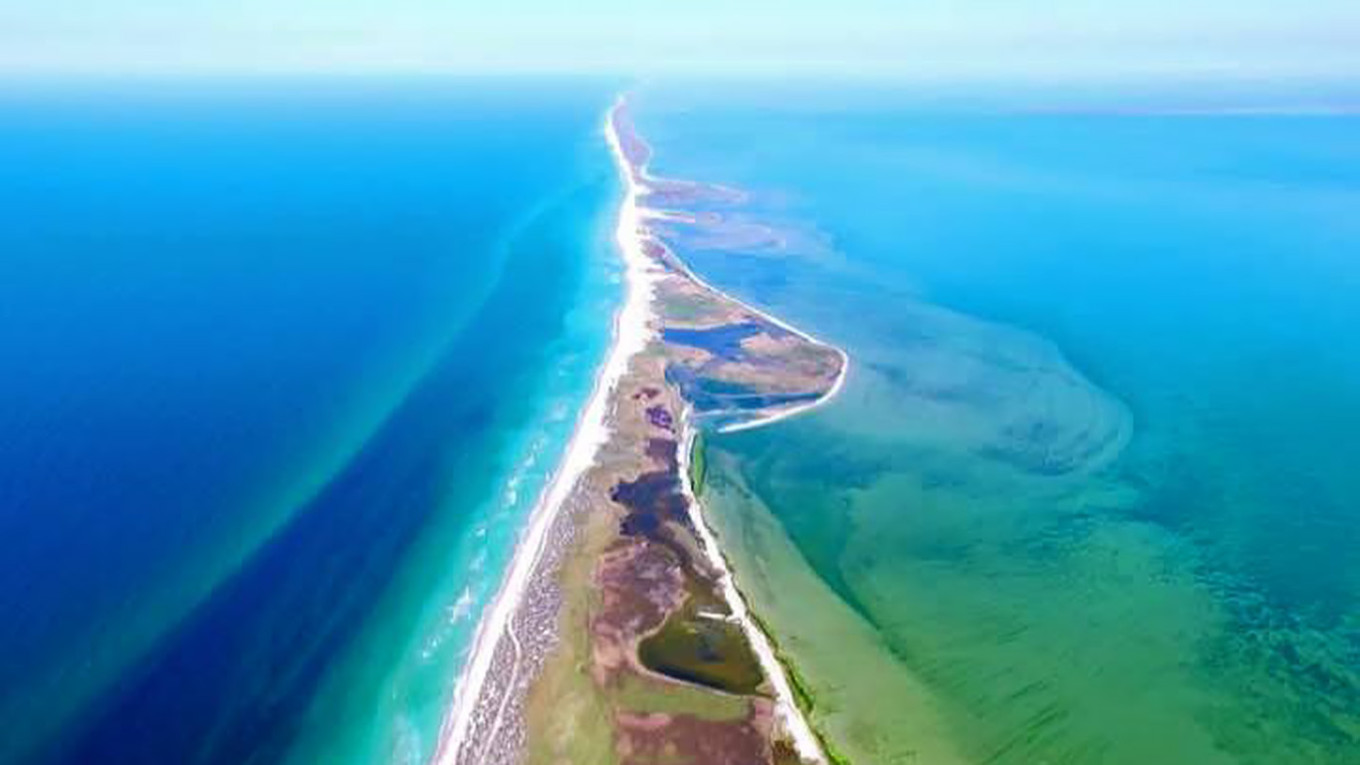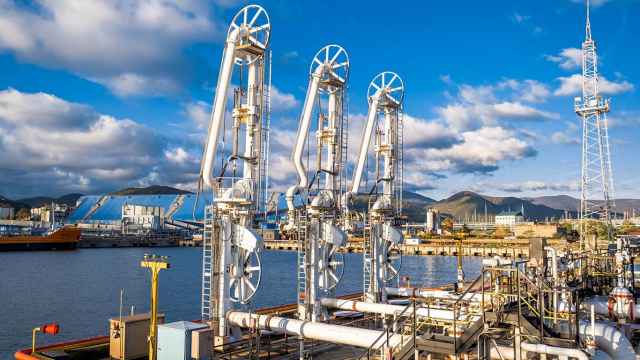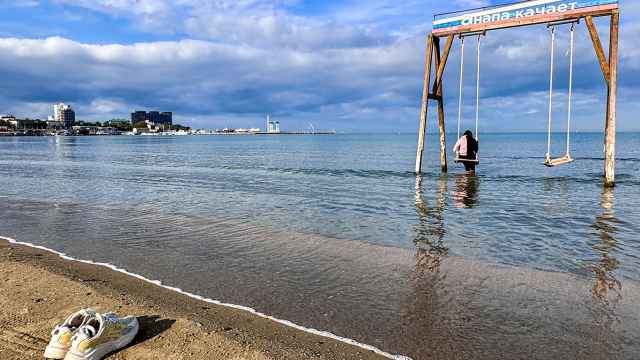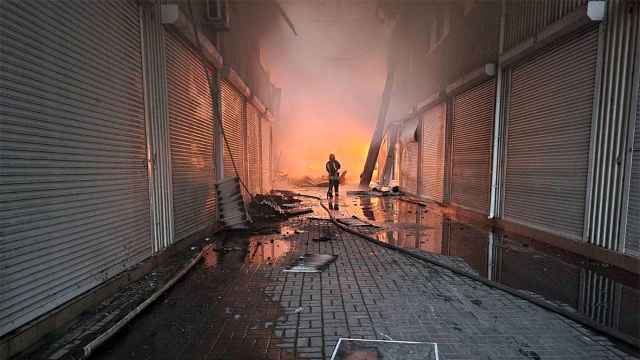A national parks employee in Ukraine’s southern Odesa region discovered oil washed up on the coastline, saying that it was likely linked to last month’s oil spill in the Black Sea.
Ivan Rusev, the employee who reported the find, said Friday that he spotted the oil near the Danube Biosphere Reserve and Tuzly Lagoons National Park. The area is located around 130 kilometers (81 miles) southwest of the port city of Odesa.
“The devastating fuel oil contamination of the Black Sea has now reached the shores of Odesa. After recent storms, oil washed up on the sandy spit near the Katranka recreational area,” Rusev said in a post on Facebook. He also uploaded photos of the oil splotches he found along the beach.
Thousands of tons of heavy fuel oil began spilling into the Black Sea last month after two Russian tankers were damaged in a storm off the coast of the southern Krasnodar region. President Vladimir Putin and scientists alike have described it as one of the worst environmental disasters to hit Russia in recent decades.
“I warned that the consequences of such environmental disasters know no boundaries and that thousands of tons of fuel oil dumped into the sea would cause immense harm to the Black Sea's ecosystems and biodiversity,” Rusev said, adding that it remains unclear whether Ukrainian authorities in Odesa are “adequately prepared” to address the environmental crisis.
Meanwhile, Russian Natural Resources Minister Alexander Kozlov said Friday that cleanup efforts along the coastline in Krasnodar could take at least another year, meaning that the area would unlikely be safe for beachgoers to visit this coming spring and summer.
Russia’s environmental watchdog Rosprirodnadzor said it would file a lawsuit against those responsible for the spill but has not disclosed which individuals or entities it plans to take to court. As of now, there has been no public information about criminal charges against Volgatransneft, the company operating the tankers, or Rosneft, whose oil products were onboard the vessels.
Authorities have been hesitant to disclose the financial cost of the oil spill’s impact on people and the environment. Russia’s Natural Resources Ministry stated it would provide a definitive damage assessment only after the cleanup is complete.
A Message from The Moscow Times:
Dear readers,
We are facing unprecedented challenges. Russia's Prosecutor General's Office has designated The Moscow Times as an "undesirable" organization, criminalizing our work and putting our staff at risk of prosecution. This follows our earlier unjust labeling as a "foreign agent."
These actions are direct attempts to silence independent journalism in Russia. The authorities claim our work "discredits the decisions of the Russian leadership." We see things differently: we strive to provide accurate, unbiased reporting on Russia.
We, the journalists of The Moscow Times, refuse to be silenced. But to continue our work, we need your help.
Your support, no matter how small, makes a world of difference. If you can, please support us monthly starting from just $2. It's quick to set up, and every contribution makes a significant impact.
By supporting The Moscow Times, you're defending open, independent journalism in the face of repression. Thank you for standing with us.
Remind me later.






